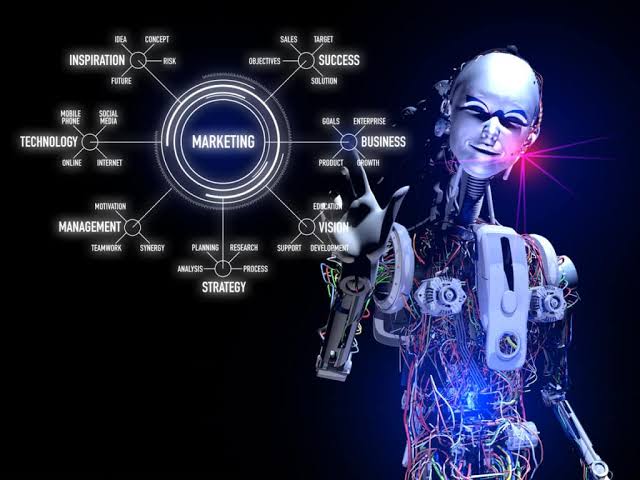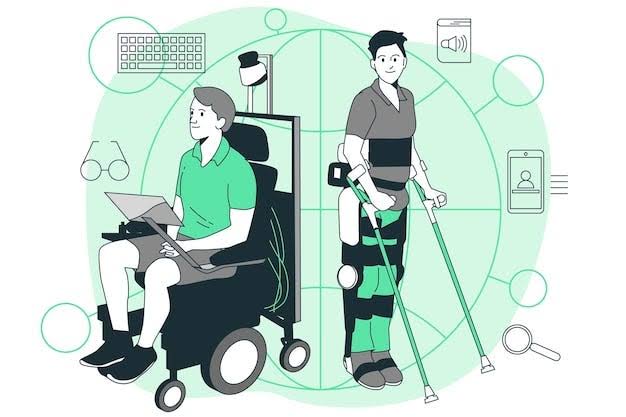Introduction to AI in Marketing
Artificial Intelligence (AI) has become a transformative force across nearly every industry, and marketing is no exception. As of 2025, AI is deeply integrated into marketing strategies for businesses of all sizes, from startups to multinational corporations. Its ability to analyze massive amounts of data, automate routine tasks, and deliver personalized experiences has made it an indispensable tool for modern marketers.
Gone are the days when marketing strategies were based on guesswork and intuition alone. Today, AI enables data-driven decisions that can predict customer behavior, optimize campaigns, and enhance customer experiences with remarkable precision. This growing reliance on AI is reshaping the entire landscape of marketing, giving businesses a competitive edge in a saturated marketplace.
Enhanced Customer Personalization
One of the most important benefits of AI in marketing is its ability to deliver highly personalized experiences. AI systems can track and analyze consumer behavior across multiple platforms, including websites, social media, and mobile apps. By understanding preferences, purchase histories, and browsing patterns, AI allows marketers to tailor content, offers, and messaging to individual users.
For instance, an e-commerce website powered by AI can recommend products based on a user’s past behavior, search history, or demographic profile. This kind of personalization goes beyond generic advertising, creating a sense of relevance and connection that can significantly boost conversion rates.
In 2025, personalization has evolved to real-time adaptability. AI tools can now dynamically alter website layouts, email subject lines, or digital ads depending on who is viewing them and when. This ensures that every user interaction feels tailored and intuitive, increasing engagement and customer loyalty.
Improved Customer Insights and Data Analysis
Another key advantage of AI in marketing is its superior ability to process and analyze data. Traditional data analysis methods are time-consuming and often limited in scope. AI, on the other hand, can sift through vast amounts of data quickly, identifying trends, patterns, and correlations that human analysts might overlook.
This allows marketers to understand not just what customers are doing, but why they are doing it. AI-driven tools like predictive analytics can forecast future customer actions based on historical data, enabling businesses to proactively tailor their strategies.
With tools like sentiment analysis, AI can also assess public opinion and customer sentiment around a brand or product, allowing marketers to adjust messaging and manage brand perception more effectively. In 2025, these insights have become increasingly accurate, helping businesses make smarter, faster, and more informed decisions.
Automation of Repetitive Marketing Tasks
AI significantly enhances marketing efficiency by automating routine and repetitive tasks. Whether it’s sending follow-up emails, scheduling social media posts, segmenting customers, or generating reports, AI can handle these tasks with speed and accuracy, freeing up human marketers to focus on strategic planning and creative work.
For example, email marketing platforms now use AI to determine the best time to send messages to individual recipients, maximizing open and click-through rates. Social media management tools use AI to identify the best content to post and the optimal frequency of posting.
In customer support, AI-powered chatbots provide instant responses to common queries, resolving issues without human intervention. In 2025, many of these bots are now equipped with natural language processing capabilities, making their conversations feel more human and emotionally intelligent.
Better Ad Targeting and Cost Efficiency
Advertising is one of the most costly components of any marketing campaign, and AI helps ensure that every dollar is spent wisely. AI algorithms can analyze user behavior and preferences to identify the most relevant audience for a particular ad. This targeted approach reduces waste and increases the likelihood of engagement.
Platforms like Google Ads and Meta’s advertising suite use AI to optimize bidding strategies, ad placement, and performance tracking. These systems automatically adjust campaigns based on real-time performance data, ensuring that marketers achieve the highest possible return on investment.
As of 2025, AI has improved not only the efficiency of ad targeting but also its creativity. AI tools are now capable of generating ad copy, designing visuals, and even editing videos based on what has been most effective in past campaigns. This makes it possible to produce high-performing ads with minimal time and cost.
Enhanced Customer Relationship Management
Maintaining long-term customer relationships is essential for brand success, and AI supports this goal by improving customer relationship management (CRM) systems. AI-enhanced CRMs can track and analyze interactions across all customer touchpoints, providing a unified and up-to-date view of each individual.
Marketers can use this data to identify high-value customers, predict churn risks, and implement targeted retention strategies. AI can even recommend when and how to follow up with leads, increasing the chances of successful conversions.
Moreover, AI-driven communication tools such as voice assistants and chatbots allow brands to remain available to their customers 24/7. This fosters stronger relationships and enhances the overall customer experience, which is crucial in the digital age where expectations are high and patience is low.
Real-Time Decision Making and Campaign Optimization
Marketing campaigns used to take weeks or months to analyze and adjust. With AI, marketers can now access real-time data that allows for on-the-fly adjustments. AI can monitor campaign performance continuously and flag issues before they become costly.
If a particular ad isn’t performing well, AI can automatically reallocate budget to better-performing channels. If a new trend begins to emerge, AI systems can identify it early and help marketers capitalize on it before competitors do.
This level of agility is particularly valuable in fast-paced markets where consumer interests change rapidly. In 2025, real-time decision-making driven by AI is becoming the standard rather than the exception, giving businesses a critical advantage.
AI and Content Creation
AI has also made remarkable progress in the realm of content creation. While human creativity remains essential, AI tools are now capable of assisting in generating blog posts, product descriptions, social media updates, and video scripts.
These tools use natural language generation (NLG) and machine learning to produce content that is grammatically correct and aligned with brand tone. They can also analyze existing high-performing content to create similar material that is likely to succeed.
As of 2025, marketers are increasingly using AI to brainstorm content ideas, test variations, and fine-tune messaging for different audience segments. This enhances productivity and ensures that content creation efforts are both scalable and effective.
Conclusion
Artificial Intelligence has revolutionized the marketing industry by enhancing personalization, streamlining operations, improving targeting, and delivering valuable insights. In 2025, its influence continues to grow, shaping the way businesses interact with consumers and make strategic decisions.
By automating routine tasks, refining advertising efforts, and enabling real-time responsiveness, AI empowers marketers to be more efficient, effective, and customer-centric. As technology continues to evolve, businesses that embrace AI-driven marketing will be best positioned to thrive in the competitive digital landscape of the future.




Fascinating